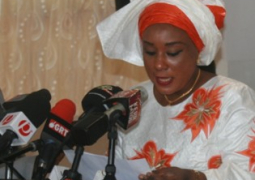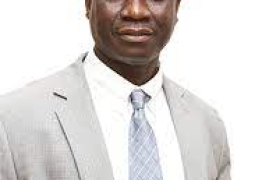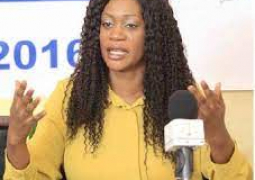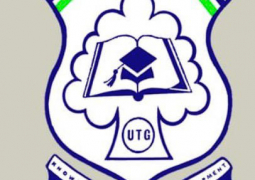The ex-Local Government and Lands minister is accused of the murder of Ousman Koro Ceesay, a one-time minister of Finance at his (Yankuba) residence in Kololi in 1995.
Earlier the prosecution told the court that section 240 subsection 4 of the Criminal Procedure Code provides that Touray cannot testify in the case after two of his witnesses had already testified.
Section 240 (4) of the CPC is the laid down procedure when the prosecution closes its case, the accused is required if he or she desires to give evidence on oath and thereafter to call his witnesses. Yankuba Touray did not follow this laid down procedure because he called two of his witnesses and thereafter, he now desires to testify.
“The question that begs for an answer is whether section 240(4) of the CPC is a mandatory laid down procedure that the accused must testify first before calling his witness(s) and failing which the accused is stopped from testifying in the trial,” Justice Jaiteh said.
He said the operative word that needs interpretation in section 240(4) of the CPC is the word “shall” in the context of whether it is mandatory for the accused to give evidence first before calling other witnesses. He added that the word “shall” has been interpreted in case law across common law jurisdictions, including The Gambia.
“Generally speaking, the word ‘shall’ imply a mandatory mandate but the word is capable of conveying either mandatory or permissive meaning, depending on the context in which it is used,” the Judge ruled.
He said there is no legal effect created in section 240 (4) of the CPC if the accused failed to testify before calling other witnesses.
“Therefore, section 240 (4) of the CPC in my view is merely directory and not mandatory and if the legislature had intended to make it mandatory, there would be a sanction for breaching section 240 (4) of the CPC and this court in its quest of doing substantial justice cannot punish the accused for a breach of duty when the act is directory. I hold the strong view that the use of ‘shall’ in section 240 (4) of the CPC does not have mandatory obligation and therefore not absolute,” the Judge held.
He detailed that every person who is tried for a criminal offence must be given full opportunity to personally defend himself or herself before the court and present his case and call witnesses in his defence and a failure on the part of the court is a breach of natural justice and the rights of accused in criminal offences are protected by section 24 of the 1997 Constitution of The Gambia.
“Section 24 of the Constitution is an entrenched fundamental human right clause and the courts are enjoined to respect and protect these rights,” he said.
He said it is for these and other reasons that the accused person must be accorded a fair hearing and be allowed to testify in this murder trial.
“From the foregoing reasons and in the interest of fair hearing and natural justice, the accused should be allowed to testify in this trial and the weight to be attached to his evidence shall be determined by this Honourable Court at the end of this trial. Accordingly, natural justice demands that a party must be heard before the case against him is determined,” the Judge ruled.
He said, in The Gambia’s constitutional jurisprudence, the fair hearing rule occupies such a tall height that no rule of law or settled practice is allowed to torpedo it, save in established exceptions.
He said the court is under an obligation to give the prosecution and the defence the opportunity of presenting their respective cases without let or hindrance from the beginning to the end which will make impartial observer leave the courtroom to believe that the trial has been balanced and fair on both sides.
“Accordingly, the application is hereby granted and the accused is hereby permitted to give evidence in this trial,” the Judge ruled.





